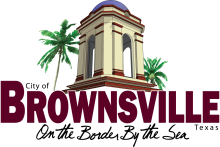Brownsville, Texas and Lit Communities partner to Build Citywide Fiber Network
Brownsville recently took a Texas-sized step toward the creation of better broadband options for its residents and businesses, as city commissioners voted in late July to enter into a public-private partnership to build a city wide fiber network known as BTX Fiber.
As reported by The Brownsville Herald:
At a Wednesday morning ceremony in city commission chambers, Brownsville Mayor Trey Mendez and Brownsville Public Utilities Board CEO and General Manager John Bruciak signed an agreement with Brian Snider, CEO of Lit Communities, that will allow the fiber infrastructure to be completely built out.
The city commission at its July 19 regular meeting approved the public-private partnership between the city, LIT Texas LLC and its subsidiary BTX Fiber, “for the construction, operations and maintenance of city-wide broadband infrastructure, including but not limited to incorporation and approval of a Right of Way and Encroachment Agreement; Engineering, Procurement and Construction Contract; and Middle Mile Connection Agreement and Grant of Indefeasible Rights of Use Agreement.
Wake up call for Brownsville
From the outside it may seem like an overnight success. But, like most stories, the planning started years ago.



